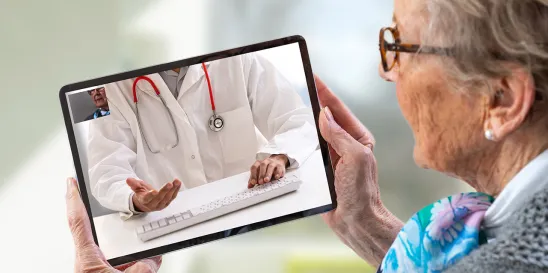On October 10, 2023, the federal Drug Enforcement Administration (DEA) issued another extension (Second Temporary Rule) of its pandemic-era telehealth flexibilities “in light of the need to further evaluate the best course of action” with respect to the prescribing of controlled substances via telemedicine. DEA is issuing a limited extension in order to give itself more time to finalize new standards governing tele-prescribing of controlled substances.
The Second Temporary Rule makes key updates to provisions of the First Temporary Rule (which we analyzed here) as follows:
- Under the First Temporary Rule, DEA extended all pandemic-era flexibilities for the prescription of controlled substances based on a practitioner-patient relationship established via telemedicine through November 11, 2023, thus allowing practitioners and patients to form new relationships involving the prescription of controlled substances via telemedicine (i.e., without an in-person medical evaluation) through that date.
- This Second Temporary Rule extends the period during which new practitioner-patient relationships involving the prescription of controlled substances may be formed via telemedicine through December 31, 2024.
- Under the First Temporary Rule, DEA established a one-year grace period – until November 11, 2024 – for those established (as of November 11, 2023) practitioner-patient relationships to continue via telemedicine before an in-person visit was required to permit continued prescribing of controlled substances via telemedicine.
- Because the Second Temporary Rule extends the effective date of the regulatory flexibilities through December 31, 2024, DEA notes that this effectively “subsume[s]” the previous grace period and it is no longer necessary.
During the period of the Secondary Temporary Rule’s extension, controlled substance prescribing via a telemedicine relationship will continue to be required to meet the standards set forth in the First Temporary Rule, including that each prescription be issued for a legitimate medical purpose by a DEA-registered practitioner acting in the usual course of professional practice, and must be issued pursuant to an interactive audio-video telecommunications system (or audio-only for certain mental health and buprenorphine prescribing if the patient does not consent to video).
DEA explains that this Second Temporary Rule is necessary “to ensure a smooth transition for patients and practitioners” who are reliant on telemedicine for access to care, and to allow providers “adequate time… to come into compliance” with new regulatory requirements. DEA is seeking to balance the public health benefits associated with continued access to care and controlled substance treatment via telemedicine, including the urgent public health need for continued buprenorphine access amidst an ongoing opioid epidemic, against the risk of diversion and entrenchment of practices by telemedicine companies that “might encourage or enable problematic prescribing practices.”
DEA projects that it will promulgate new standards and safeguards “by the fall of 2024.”



 />i
/>i

